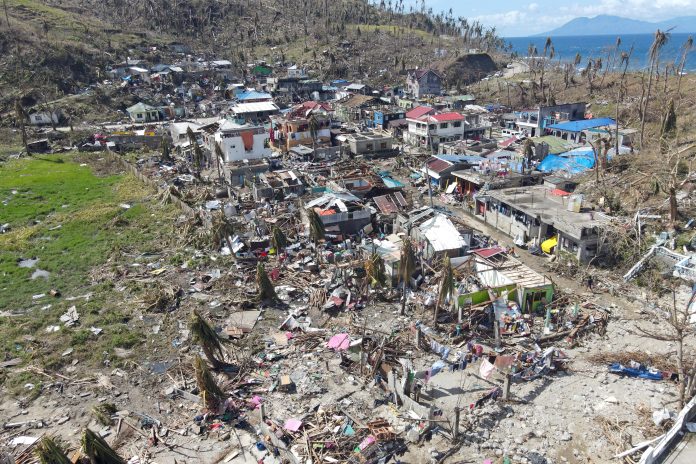One month since super typhoon Odette (Rai) hit the Philippines, an assessment released by the International Labor Organization revealed that nearly 2.2 million workers have been directly affected by the disaster.
Although the typhoon hit parts of 10 regions in the country, the impact on employment varied, said the report.
Among the regions hardest hit were Western Visayas that saw 21 percent (672,000) of the workforce affected, Eastern Visayas with 19 percent (343,000); and Central Visayas with 18 percent (643,000).
In the Caraga region in Mindanao, nearly one-third of the region’s entire workforce (363,000) was affected.
The typhoon devastated millions of lives and livelihoods and has dealt a huge blow to the socio-economic recovery from the COVID-19 pandemic, said the ILO report.
The United Nations has called the impact “a crisis within a crisis” as the country is barely recovering from the impact of the pandemic, and currently addressing a spike in cases.
The ILO assessment highlights how the typhoon has affected the most vulnerable, and worsened pre-existing labor market challenges.
Nearly 38 percent (839,000) of the total affected workers are women, according to the study.
Prior to the typhoon, about three in five of these impacted women workers were in low paid jobs mostly in agriculture, wholesale and retail trade or domestic work.
Young people and older workers are also among those significantly affected.
“It is heart-breaking to see how typhoon Odette has affected already vulnerable workers with limited capacity to earn, less income security, and lack of social protection,” said Hideki Kagohashi, Enterprise Development Specialist of the ILO Country Office for the Philippines.
“A human centered recovery is vital, one which places decent work and sustainable livelihoods at the heart of efforts to build back better,” Kagohashi added in a statement released on January 14.









